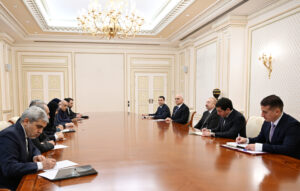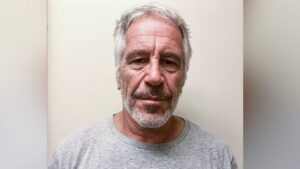ICRC tries to overshadow activities of ARCS

The Azerbaijan Red Crescent Society (AzQAC/ARCS) has been a part of the International Red Cross and Red Crescent Movement for more than 100 years since 1920, guided by the 7 fundamental principles of the International Movement, especially the principles of “neutrality”, “impartiality”, and “unity,” in times of peace and in the conditions of military conflicts, and at the same time during emergency situations, regardless of religious belief, nationality, race, political views, provides necessary humanitarian aid to war victims, internally displaced persons and refugees, mine victims and other needy people without distinction between people.
During the First and the Second Garabagh Wars, and during the COVID-19 pandemic, ARCS provided appropriate humanitarian aid to the victims within the framework of close cooperation with the International Committee of the Red Cross and the International Federation of Red Cross and Red Crescent Societies. Besides, over the last 30-year activities, both international organizations have implemented quite a variety of humanitarian projects in Azerbaijan.
However, the ICRC, which has been trying to overshadow the activities of ARCS, has undermined its credibility with a series of biased activities. In an interview with AZERNEWS, political analyst and Chief Editor of Milli.az news site Elchin Alioglu, who shed light on this type of activity of the organization, noted that the biased position in the activity of the ICRC is not a new phenomenon.
“The ICRC does not act arbitrarily, on the contrary, it remains loyal to the policy it has been pursuing for many years. The common slogan of the ICRC is “not to interfere in politics, not to politicize humanitarian issues, to help peaceful people in areas with humanitarian disasters, famine, disease epidemics, in areas where military operations have taken place, and at the same time, prisoners of war and to be interested in the fate of the hostages, and the most importantly to assist in the release of those persons.”
According to the political analyst, if we look at the activities of the ICRC in different countries of the world during the last 15 years, we will see that its activities have been observed with very bad and very defective actions, from Latin America to Africa, South East Asia and other countries.
Also, the expert gave examples in this regard.
“For example, during the humanitarian disaster and genocide in Miami, the ICRC issued 26 statements regarding the genocide of Rohingya Muslims, but did not save 26 people. In Africa, Somalia and Somaliland, Ethiopia and Eritrea, Nigeria and Niger, Algeria and Mali, as well as in military conflict zones, most recently in Venezuela, where tens of thousands of people are at risk of starvation after two coup attempts, the ICRC has taken no action against it.”
Later, the analyst spoke about the Committee’s attitude towards Azerbaijan.
“As for Azerbaijan, since 1991, the ICRC has not investigated any issue related to the fate of approximately 4,648 (numbers are not exact) prisoners and hostages. After those persons were captured and hostage by the Armenians, there is no any information about their whereabouts and whether they are alive or not. The ICRC is sparing mediation efforts to organize the return of 2 Azerbaijani soldiers recently captured by Armenians. The ICRC’s flawed activities related to financial frauds, financial scandals, various gender inequality, national and ethnic, religious tolerance, racism, and other issues are known to the world. At the same time, the inconsistency between the ARCS and the ICRC is obvious. It is obvious that people are discriminated against in ethno-confessional and especially ethnic terms,” the expert noted.
E. Alioglu also touched on some mysterious points while talking about the international humanitarian aid of the Committee.
“Why has the ICRC not made a statement so far that it cannot include Azerbaijan’s humanitarian aid in the areas where the Russian peacekeeping contingent is temporarily stationed? Why can’t they conduct sociological, ecological, humanitarian and general monitoring in Aghdara, Khankendi, and Khojaly?” the expert emphasized.
Elchin Alioglu pointed out that the statement of the Armenians “We are under blockade” is a stark lie, and in fact, they put themselves in a situation of blockade.
“Is it really true that during these months there was not a single patient who needed resuscitation? Is everyone there healthy?” the expert added by asking a question.
In addition to this opinion, Elchin Alioglu noted that the ICRC did not compile any official document about the “starvation” spread by the separatists.
“According to the Armenians, a so-called humanitarian disaster and famine is taking place in Garabagh. But the question arises, has the ICRC representation in Khankendi registered the fact of “starvation”? If it has not, then the committee is acting biased. Another point is why does the Committee’s representative office in Yerevan deal with these issues? The Committee is currently engaged in purely political activities in the territory of Azerbaijan. The Committee has not made a single statement that all the territories under the control of Russian peacekeepers in Garabagh are monoethnic.”
Finally, Elchin Alioglu linked the activities of the Committee with support for Nazism in WWII.
“The Committee supported the Nazi ideas of Germany and the Vatican and showed the same attitude when committing genocide against the Jews. Also, the Committee remained silent against the sailors who disappeared in Norway and the German refugees who disappeared in Switzerland. All these mentioned facts can be found in the book of the writer named Anne Frank”, the expert said.
Noting that the committee turned a blind eye to thousands of Ukrainian children being taken to Russia, Alioglu added that the organization continues such fascist activities.
The organization has not even helped to evacuate a single Ukrainian from war zones. Ukraine officially criticized the Committee on behalf of the ombudsman. Therefore I think that expecting any objective position from the ICRC is unreasonable.


